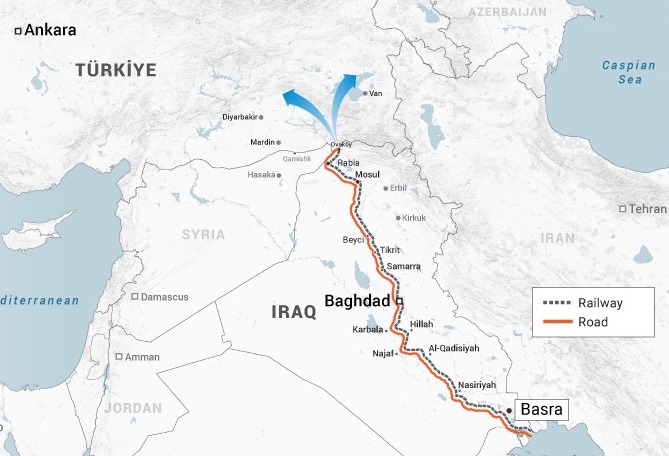Giant new Iraqi port touted as alternative gateway to Europe

Abu Dhabi’s AD Ports Group has entered into a preliminary agreement with the General Company for Ports of Iraq (GCPI) to establish a joint venture to develop Al-Faw Grand Port and its economic zone. The agreement also encompasses the potential investment, management, and operation of ports, economic zones, and related infrastructure in other cities in Iraq.
The Grand Faw port project has been on the drawing board since 2010. Much delayed, it is expected to be completed by the end of next year. The port, which features the world’s longest breakwater (pictured), is located on the northern tip of the Persian Gulf near Basra and is set to be among the largest ports in the Middle East when it finally opens, catering for containers, dry bulk and tankers.
Farhan Muhesen Al Fartosi, director general of GCPI, said: “By leveraging the port’s strategic location linking commercial lines between the east and the west, we will unlock new opportunities for trade, investment and economic growth, contributing to the prosperity of our nation.”
“Combined with the development road project, Iraq’s most prominent economic and logistics development, this project will strengthen maritime transport and freight shipping between Asia and Europe,” said Razzaq Muhaibas Al-Saadawi, Iraq’s minister of transport.
Earlier this year, Turkey and Iraq unveiled a massive, 1,200 km, $17bn road and rail link project (see map below) linking the Grand Faw port in southern Iraq to Turkey’s border and further extending into Europe, avoiding the Suez Canal.


Shouldn’t the countries responsible for destroying the infrastructure be doing more? After all, that would reduce refugees.
from Iraq my dream is one day Iraq become a country of Europe continet 🇪🇺